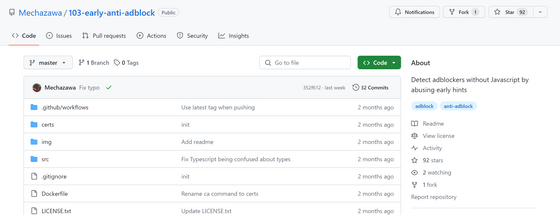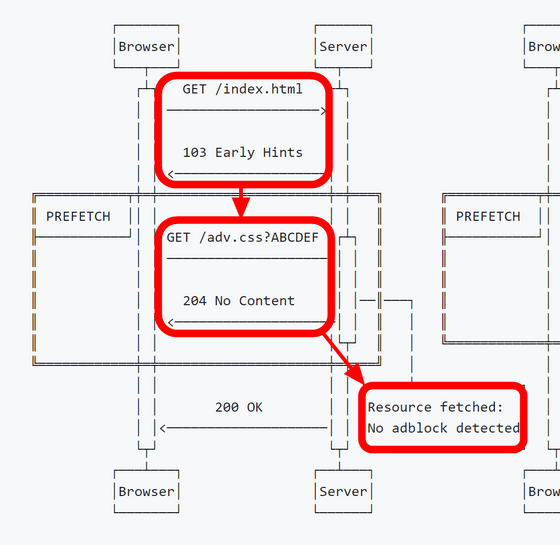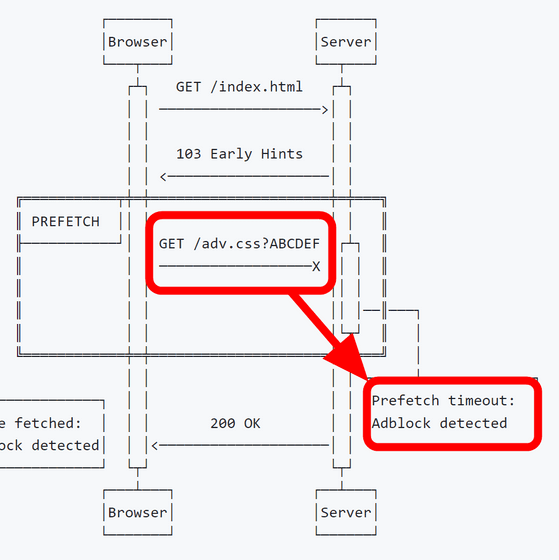'103 Early Anti Adblock' detects ad blockers even when JavaScript is turned off

HTTP communication uses a three-digit number called a 'status code' to convey the meaning of the communication. One such code was developed to detect ad blocking using a response called '
GitHub - Mechazawa/103-early-anti-adblock: Detect adblockers without Javascript by abusing early hints
https://github.com/Mechazawa/103-early-anti-adblock

'103 Early Hints' is primarily used in conjunction with the Link header to provide a URL so that the browser can preload resources before the server prepares the response.
The proof of concept uses '103 Early Hints' to tell the browser to preload a file with a name that is blocked by an ad blocker, such as 'adv.css?ABCDEF', and a response such as ' 204 No Content ' indicates that ad blocking is not being used.

Conversely, if the prefetch times out, you know that ad blocking is present.

At the time of writing, Chrome doesn't allow ad blockers to manipulate resources loaded using 103 Early Hints, and Safari doesn't support preloading using 103 Early Hints at all, so this proof of concept only works in Firefox.
The detection of 103 Early Hints is not a major issue since it only works on Firefox and affects a small population of users, but as browsers expand their support for 103 Early Hints, 103 Early Anti Adblock has the potential to become a reliable way to detect ad blockers.
The creators of the 103 Early Anti Adblock proof of concept also introduced ' pixelAntiAdblock ' as another method to detect ad blocking during server responses. Although it requires complex implementation and has a significant negative impact on page loading speed, it appears to be more effective with a lower rate of false positives.
Related Posts:
in Software, Posted by log1d_ts







